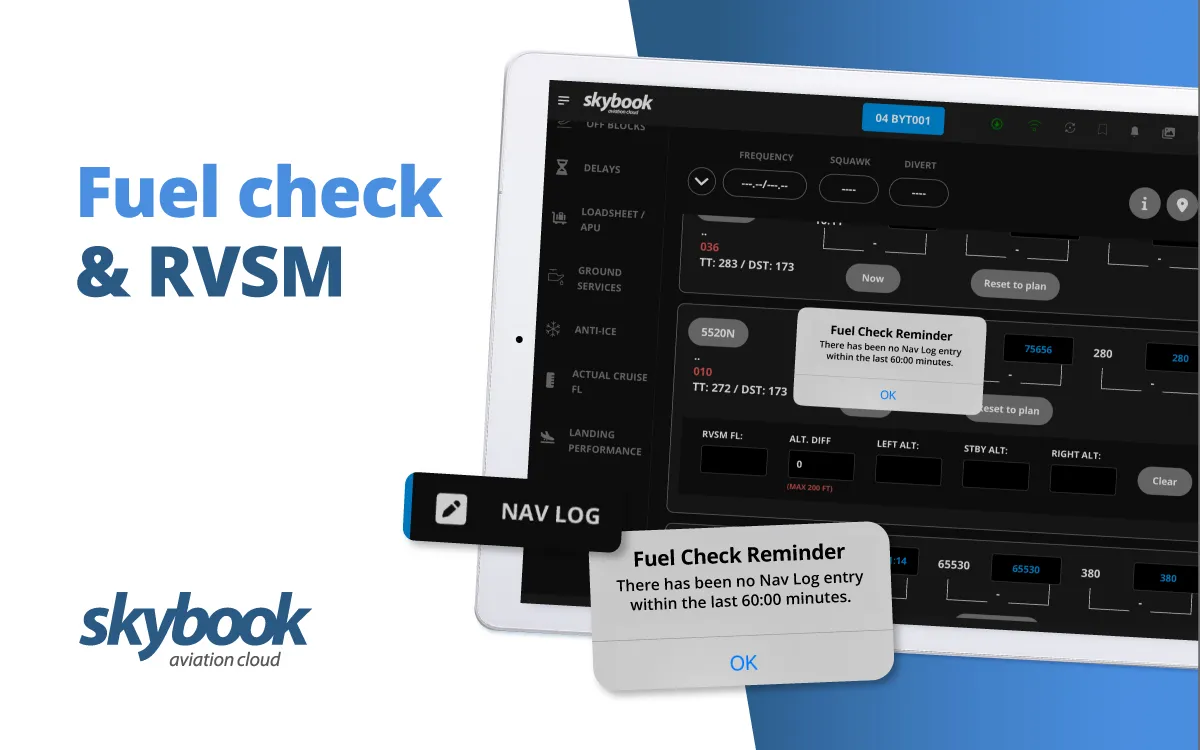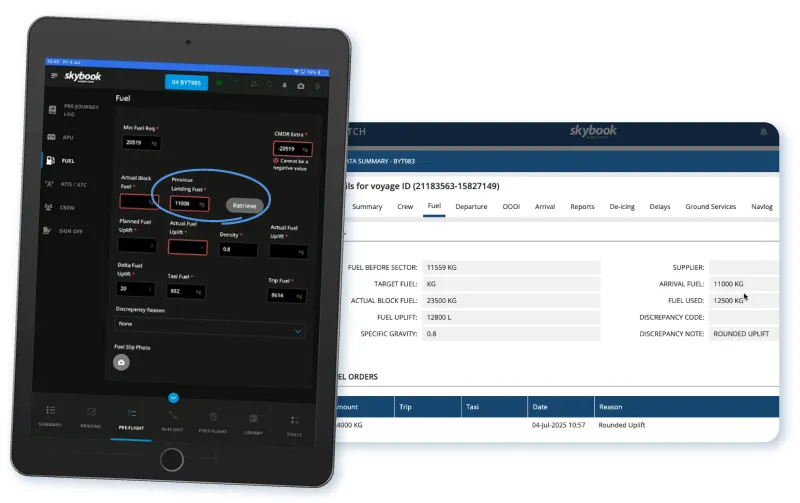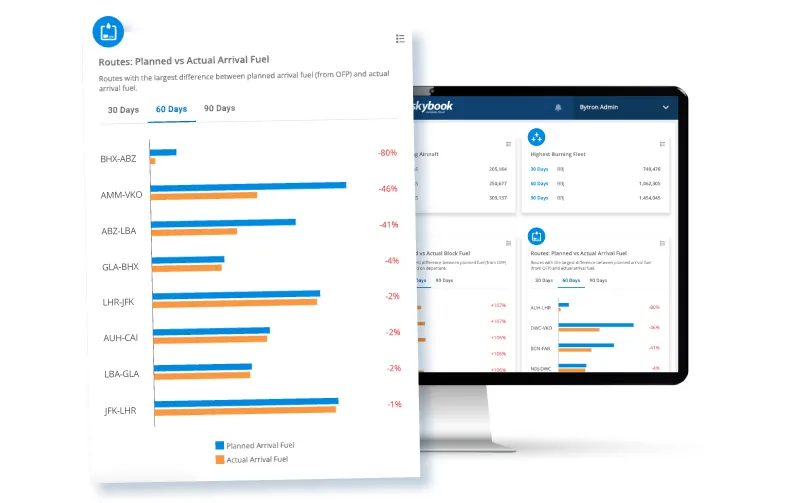
Nav Log fuel check & RVSM
Wouldn’t it be easier if your previous sector’s arrival fuel data automatically followed the aircraft?
With the skybook Electronic Flight Bag (EFB), that’s exactly what happens, making life easier for both pilots and flight operations teams.
Arrival fuel is a crucial part of your post-flight records, giving insight into fuel burn, reserves, and operational efficiency.
But traditionally, tracking that data across multiple sectors, especially when different crews are involved, can be tedious and prone to error. Often requiring manual checks and paperwork.
With skybook, arrival fuel data follows the aircraft, seamlessly shared between EFB devices and instantly synced to ground reports for a smoother, stress-free process.
After landing, adding the arrival fuel figure is a quick step for pilots as they wrap up the post-flight process in the EFB app.
From there, skybook automatically carries the arrival fuel data over to the next sector for that aircraft.
So, it doesn’t matter if it is a new crew or the same crew. The information is right there, just by tapping ‘Retrieve’.
During post-flight the fuel data is also transmitted to the skybook Ground Portal, which is included in the dispatch flight summary, and stored in sector history of reporting & analytics.
It’s a small but powerful feature that simplifies workflows and improves the accuracy of your fuel tracking across flight operations.
Arrival fuel varies depending on aircraft type, airline policy, flight length and of course weather conditions.
Here are some industry benchmark estimates for short-haul flights:
Arrival fuel example estimates:
Embraer E175: 1,500 - 2,500kg
Bombardier CRJ-900: 1,300 - 2,000kg
Boeing 737-800: 2,500 - 4,000kg
Airbus A320: 2,800 - 4,200kg
Example breakdown includes:
Note: Factors like ATC delays, alternate planning and weather can impact arrival fuel.
With skybook, arrival fuel data isn’t just captured, it can also be analysed.
The Fuel Reporting dashboard lets operators compare all their routes planned vs. actual arrival fuel for 30, 60, or 90 days.

Allowing operators to identify inefficiencies, excessive reserves, or fuel-saving opportunities and make data informed decisions to optimise future flights.
skybook transforms fuel data from a post-flight formality into a tool for continuous improvement.
The auto-retrieval and tracking of arrival fuel isn’t just a box ticking exercise, it helps:
Whatever the flight or aircraft type, skybook simplifies fuel data management, reducing hassle and improving accuracy for your ops team.
Request a skybook demo today and see the difference for yourself.